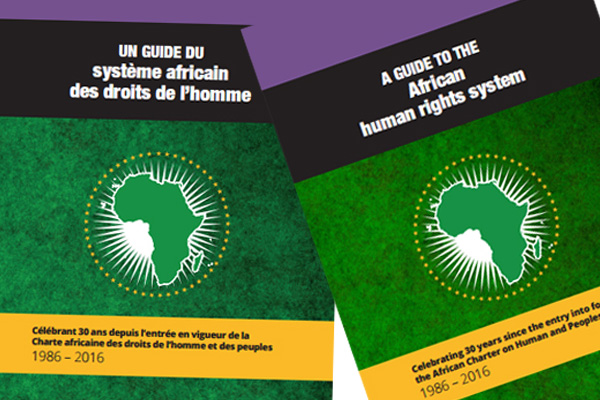As part of the African Union (AU) Year of Human Rights, the Centre for Human Rights (Faculty of law, University of Pretoria) compiled a publication tracking the historical evolution and providing an overview of the African human rights system.
This publication, A guide to the African human rights system Celebrating 30 years since the entry into force of the African Charter on Human and Peoples’ Rights 1986 - 2016, was launched during the African Human Rights Moot Court Competition, which took place in Pretoria from 3 to 8 October 2016. This year the Moot celebrated its silver jubilee, as the Centre has been hosting it for the last 25 years – without interruption. Fifty nine universities from all over Africa participated in the 2016 edition of the Moot. The Moot Court Competition has indeed been integral to much of the Centre’s 30 years of existence, another landmark acknowledged this year.
The booklet – which is also available in French as Un guide du système africain des droits de l’homme Célébrant 30 ans depuis l’entrée en vigueur de la Charte Africaine des Droits de l’Homme et des Peuples 1986-2016 -- will also be disseminated to participants at the session of the African Commission on Human and Peoples’ Rights, which will take place in The Gambia from 21 October 2016.
The African Commission is an AU human rights watchdog, with the mandate to supervise state compliance with the AU’s main human rights treaty, the African Charter on Human and eoples’ Rights. The AU declared 2016 its Year of Human Rights (with a focus on the rights of women), in commemoration of the entry into force of the African Charter 30 years ago, on 21 October 1986.The Moot Court Competition and the booklet are part of the events celebrating the AU’s Year of Human Rights.
The booklet A guide to the African human rights system Celebrating 30 years since the entry into force of the African Charter on Human and Peoples’ Rights 1986 - 2016 has been published by the Pretoria University Press (PULP), and is available as a free open access publication at www.pulp.up.ac.za. The financial assistance of the UN Office of the High Commissioner for Human Rights towards the printing and dissemination of this publication is acknowledged with gratitude.


